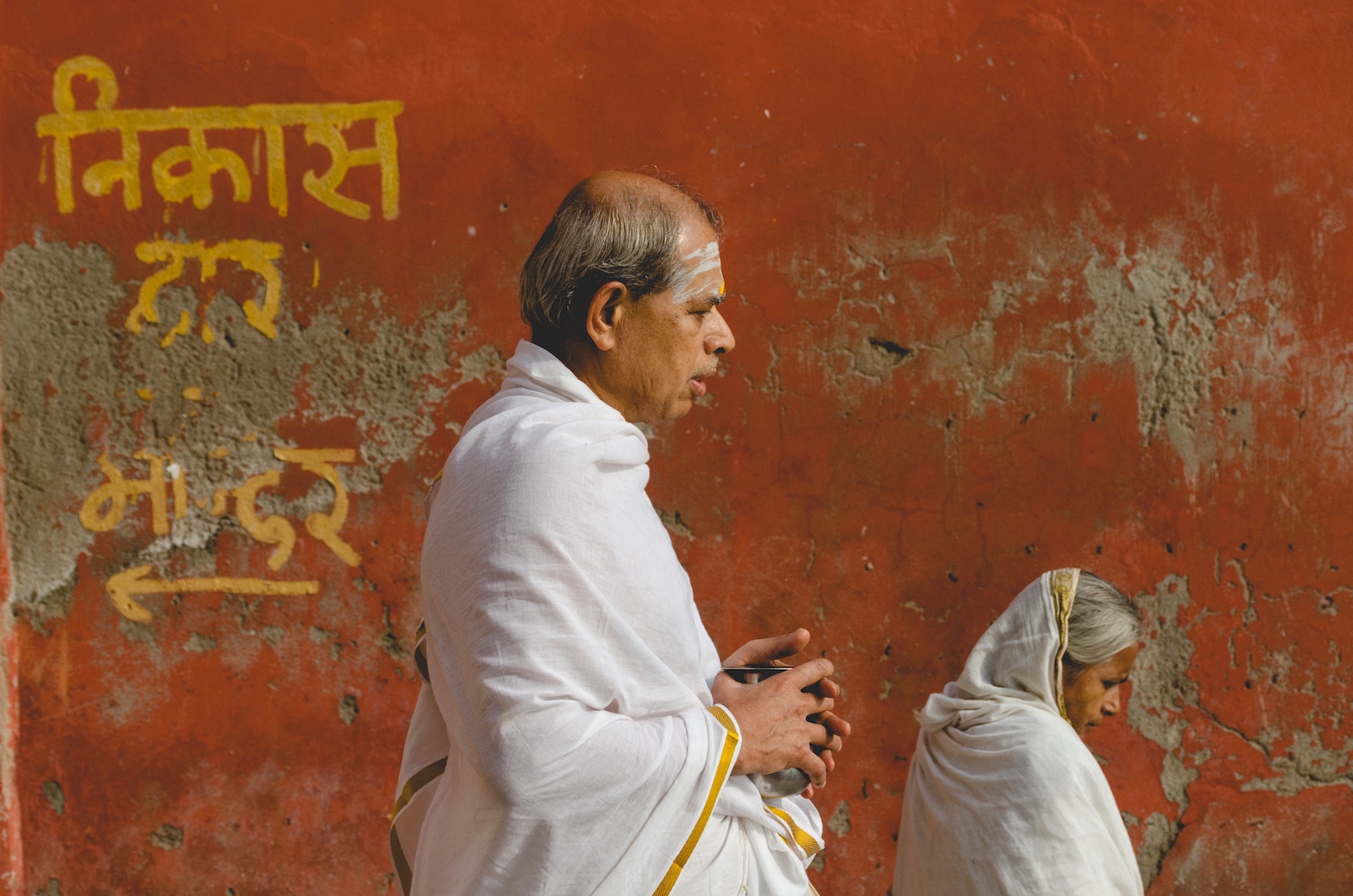
“I tell you the truth, unless you are born again, you cannot see the kingdom of God” (John 3:3).
Nicodemus replied, “How can a man be born when he is old?” This “born again” language puzzled him, and I see why. It was predicated on the most supernatural act Jesus ever accomplished, and he hadn’t even done it yet.
Christians today, having all of Scripture at our disposal, know that being born again—spiritually renewed for all eternity through faith in Christ—is made possible by Christ’s life, death, and, most crucially, his resurrection.
But Hindus are looking for a chance to exit the born-again, reincarnation cycle and enter ultimate salvation. And their shot at achieving spiritual rebirth is largely dependent on their family’s people, or caste.
To put it simply, a Hindu is “born again” innumerable times until they do enough good works and achieve enlightenment for salvation. Somewhere along the “born again” journey, one inherits dvija, which is something achieved by people born into certain groups or castes who performed well in a previous life.
“The resurrection stands as proof that a drastic solution was necessary for the real problem of sin.”
Dvija is a prestigious, inherent quality that guarantees an even better status when you have your next incarnation after death. In order to achieve a Hindu’s version of salvation, it’s most advantageous to be born dvija so you can exit the cycle of rebirth sooner. Those who are not born dvija strive to earn favor before the gods so they have a chance of being dvija in the next life, then possibly achieve salvation in the life after that.
This ancient Hindu worldview has waned a bit, but there are people who still believe dvija has a role in their earthly and eternal fate. Dvija status poses different problems for those who are dvija and those who are not, particularly when it comes to understanding true rebirth in Christ.
Those Who Are Dvija
In my experience, people born into a dvija family are often proud of their status. They believe they’ve inherited an easy road to rebirth—a new life that Jesus mentions in John 3, just via a different road. They can live as they please, believing they have divine favor secured in their back pocket.
People who are dvija, then, can only understand true salvation through Christ when they feel the weight of sin. When they learn that someone had to die to avail our rebirth—salvation—they seek to understand why death was necessary in the first place. Christ’s death and resurrection were required for us to be born again because it is the only way for sinful people to be justified before God. Paul writes in Corinthians that without the resurrection, we’re still in sin, and therefore condemned before God (1 Cor. 15:3; Rom. 6:23).
The resurrection stands as proof that a drastic solution was necessary for the real problem of sin. By God’s grace, people with dvija will see that if something as supernatural as Jesus’s death and resurrection was necessary to achieve eternal life, then nothing they could do or inherit would ever measure up to that requirement.
Those Who Are Not Dvija
On the flip side, those who are not dvija usually hear Jesus’s words in John 3:3 and have one of two reactions. Some are utterly dismayed. How disheartening would it be to hear Jesus’s requirement for eternal life—being born again—and believe you had no hope because fate put you in the wrong family? They believe eternal hope is unattainable. Others are enraged by the injustice of the system and are driven to religious apathy. How could a god require something that fate does not give you?
“How could a god require something that fate does not give you?”
My friend Raj fell into the second category. Although a Hindu, he was not born into a dvija family. He watched his family perform countless rituals to gain favor before Hindu gods and hope it will change their dvija status in the next life because there is no hope in this one.
Raj felt strongly that his family was no less human than the dvija families living up the hill from them. He didn’t think it was fair that gods may or may not give his family a different status the next time around if they did everything just right.
Eventually, Raj was given access to the New Testament and learned the Almighty God loved him so much that he died as a sacrifice for his sins and conquered death. Christ’s victory over death was good news to Raj because it’s good news for all people. Eternal life was not a hopeful reality until Raj encountered Christ’s power over death, paving the way for people to be born again one time, regardless of earthly status (Rom. 1:16; John 14:19).
Resurrection for All People
As believers, we understand that Jesus’s love and resurrection is for all people regardless of their ethnicity, status, or any earthly distinction. This is a picture of Christ’s love, and the power of the resurrection to transform our hearts.
No matter where you live in the world, the people around you fall on various points of the spectrum of what they believe is necessary for spiritual rebirth. Some may believe they earn a better standing in their next life. Others may believe their eternal fate is out of their hands. Although their worldview is different, it’s not immune to radical change brought about by the news that Jesus is alive today. Share it, so people can truly be born again into abundant life in Christ.
N. Eardley serves on the research team in South Asia where he and his wife have facilitated church planting among Hindus for the past twelve years.

